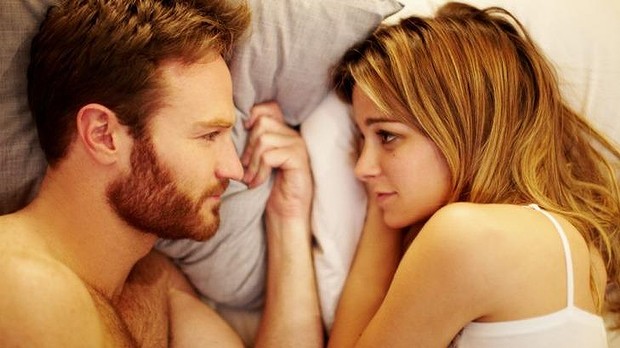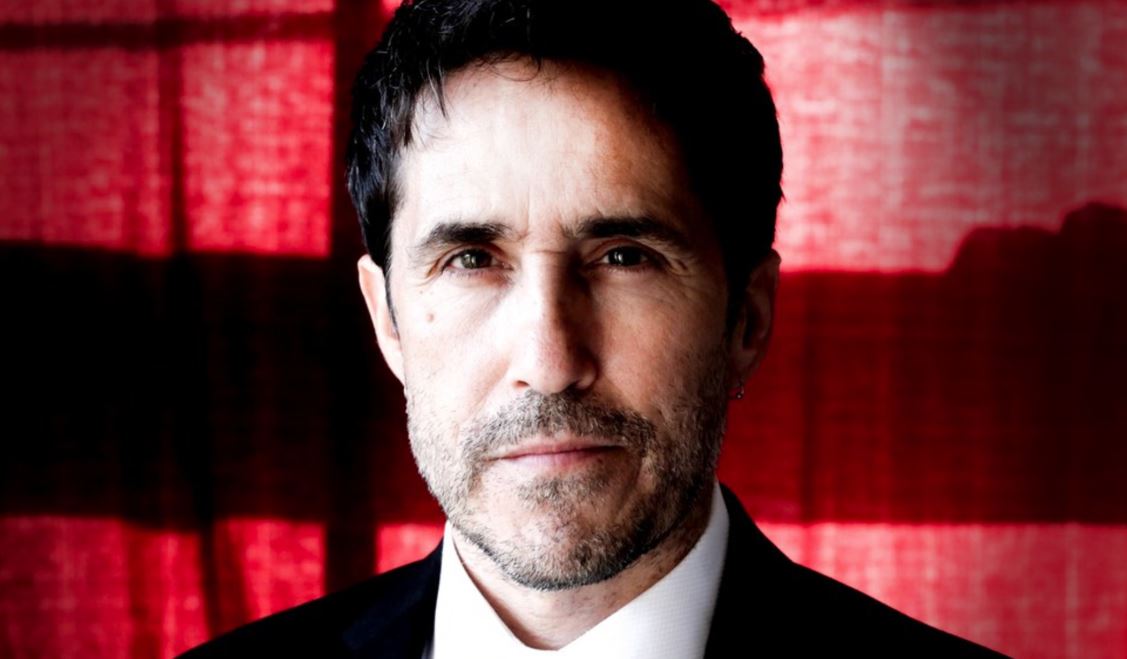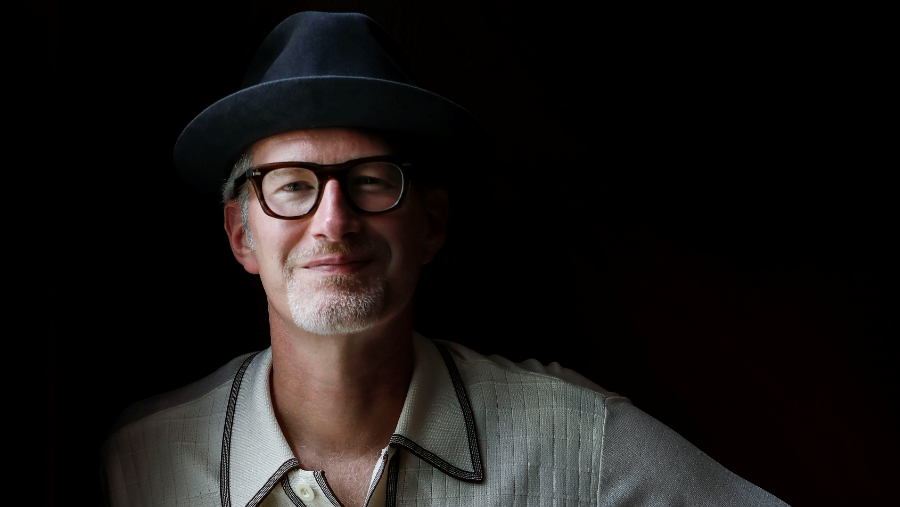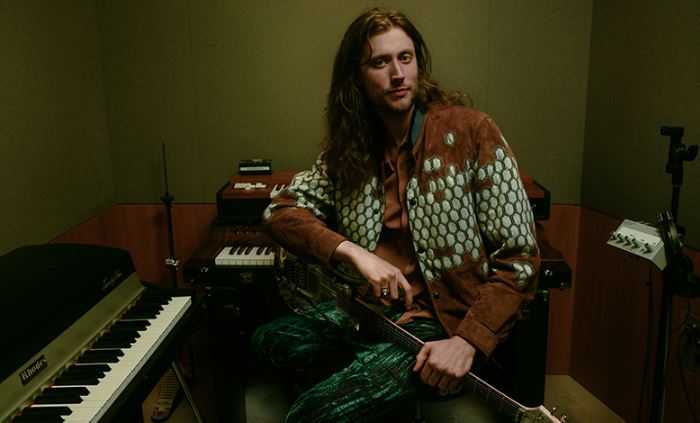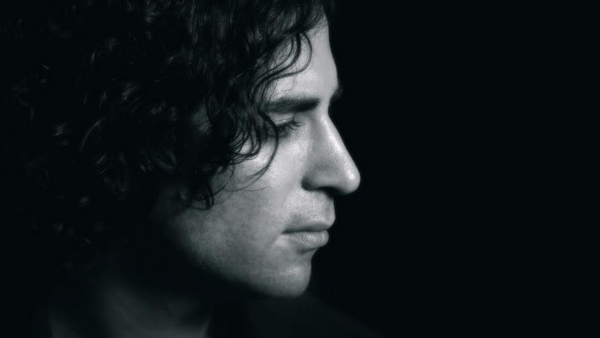 Michael Yezerski is a multi-award winning composer, music producer and songwriter. He has composed music scores and songs for some of the most celebrated international and Australian film productions of the last few years. Career highlights include The Black Balloon (Best Picture, AFI Awards), The Lost Thing (Oscar Winner, Best Animated Short) and PJ Hogan’s box office hit Mental (starring Toni Collette, Liev Schreiber and Anthony LaPaglia). Under Steve Jablonsky, Michael has written additional music for Transformers 4: Age of Extinction.
Michael Yezerski is a multi-award winning composer, music producer and songwriter. He has composed music scores and songs for some of the most celebrated international and Australian film productions of the last few years. Career highlights include The Black Balloon (Best Picture, AFI Awards), The Lost Thing (Oscar Winner, Best Animated Short) and PJ Hogan’s box office hit Mental (starring Toni Collette, Liev Schreiber and Anthony LaPaglia). Under Steve Jablonsky, Michael has written additional music for Transformers 4: Age of Extinction.
Michael is known for his incredible musical range and unique sound. He is equally comfortable with large scale action drama (Drift, Storm Surfers 3D) as he is with intimate character studies such as The Turning (starring Rose Byrne and Miranda Otto) and Josh Lawson’s darkly comedic The Little Death. He has also worked extensively in television with Australia’s hugely successful drama A Place To Call Home and the biopic Carlotta.
Michael has been nominated three times for the highest accolade in Australian Film, the AACTA Award. He has won five APRA-AGSC Australian Screen Music Awards (with many further nominations), Gold Medals at the Park City Film Music Festival, the APRA Professional Development Award, Best Classical Artist at MusicOz as well as nominations from the if Awards, MusicOz Awards and two nominations from The Film Critics of Australia Awards. He has been called a “rising star” of Australian music and was included in the Sydney Morning Herald’s list of “People to Watch”.
The Little Death, one of Michael’s most recent projects, is one of seven Australian films now bound for the Toronto International Film Festival (click this link to read more about that). Here are the highlights from our time with Michael Yezerski.
GST: What got you into music and who do you look to for inspiration?
MY: It’s funny but we didn’t really have any musicians in the family growing up. My parents were migrants and of course that meant that a career in the arts was not open to them. I was encouraged to seek out my passions though and I gravitated towards music. I chose to play the clarinet in the school band, then I started teaching myself to play the piano and then when I was 13, I started to write my own stuff. Film scoring was always in the back of my mind after my Dad suggested it to me as a kid walking out of a screening of “Star Wars”. I never really considered it properly though until I went to film school.
Inspiration is a funny thing. It can come from all quarters, not necessarily musical either. I find inspiration in art, in food, in film and in music. Let’s take food for example. You can go into a restaurant and be served two flavors that you would never have considered putting together. That’s not a great example but I’m inspired by that process. I admire people who make connections that haven’t been thought of before. I try to do that in music.
GST: You’ve written music for short films, TV, feature films and documentaries and 2013 and 2014 are busy years for you. Was there a lot of overlap, schedule wise and if so how do you juggle more than one project at a time?
MY: I love being busy and absolutely hate sitting idle. The busier I am, the better! Juggling projects is often difficult and I try not to take on more than one at a time but there’s definitely an adrenaline rush that occurs when you are on a deadline. It’s crazy but I actually find it creatively inspiring.
GST: Of your current projects, what has challenged you the most?
MY: That’s tough to answer because each project brings its own challenges. On my most recent film, The Little Death, for example, the challenge was balance. Here you had a brilliant script, wonderful direction and a cast who performed beautifully. What could music bring that wasn’t already on the screen? Josh Lawson and I played around with all kinds of ideas until we hit on it.
TLD is a modern tale, set in suburbia yet the themes of the movie – the search for compassion and understanding – are timeless. So the score tips its hat to the sound of Old Hollywood, to 1930’s Jazz, to 80s Love Ballads – basically the music of love through the 20th around in style a bit, which only serves to reinforce the theme that love and companionship, despite the obstacles, endure.
GST: Depending on schedule, location and overall feasibility, how often do you get to make set visits? Does it, like reading a script, help with the process?
MY: I love visiting sets although I always feel totally out of place. It’s definitely fun to get out of the studio and see where the all the beautiful pictures come from. In terms of process, that is hard to say. So much happens in the edit room. Often that’s where the score really begins to take shape. The score is always very responsive to the tempo of the cuts, to the progression of time, to the emotion of the performances that often it’s not until the picture really starts to come together that the role of music becomes clear.
GST: Since projects vary depending on a number of factors – time, expenses, resources – is there, more or less, a typical time frame that you and other composers work within?
MY: The more I work the more I realize that there isn’t really a “typical”. Every project is different and has different expectations. I always would love to have more time but sometimes a tight deadline actually does pressurize you into delivering your best work.
GST: I’ve read that The Little Death has just been added to the Australian line-up at the Toronto International Film Festival next month. What was your most memorable experience working on that film?
MY: We are so excited to share TLD at Toronto, and on opening weekend too! It came from a brilliant script by Josh and that is really the key. I remember laughing out loud at the words on the page before a scene was shot. I think that speaks volumes about a project. When a great story engages, delights and shocks you off the page, that is something pretty rare and special. TLD was that project for me.
I have this vivid memory of Josh Lawson sitting with me in my studio for the first time and the discussion immediately turned to favorite film scores of all time. He started singing the theme from “Back To The Future” which is one of my all time favorites and I knew we were on the same page. I thought, “I have to work with this guy”.
GST: What are your thoughts about a blanket theme for a story versus trying to weave multiple themes together? Do you find it better to over score and just take out what you don’t need?
MY: Great question! I find that with a feature film you do need several themes (or short motifs), otherwise the score can get pretty boring across 90 minutes or more! Some directors prefer to attach musical themes to characters, others prefer to attach them to emotional arcs in the story. There’s no right or wrong answer. It’s a question of style and personal taste.
I find that it is best to deliver more music rather than less, so that at least the filmmakers have options to choose from. You never want to get to the dubbing stage and have the director ask for a piece that hasn’t been written or recorded! In terms of silences, they are actually really important in a film. A score is as much about when the music isn’t playing as when it is. Even the point in time that music comes in or out can affect the reading of a scene. So it’s vital to communicate with the director and producers constantly about what they want the music to achieve.
GST: What is your idea of an optimal working condition and how close do your projects tend to be to that set of circumstances?
An optimal process for me always involves live players. It sounds like a no-brainer but it’s actually a consideration these days. A score played by humans (as opposed to a computer) is always more immediate and compelling than the alternative. I always push for budgets to allow for a great recording.
GST: What is one of the most valuable things you learned about the writing process that you can pin point back to one experience?
MY: I try not to get too focused on trying to achieve a particular result because usually that means you are trying to emulate an existing sound. I find that trying to stay focused on the process of writing rather than the results of writing is more beneficial and often more creative. It’s hard to do though. When you are banging your head against a wall and nothing is working it’s not a lot of fun! But that is what a creative life is all about I guess.
Also, I don’t like repeating myself. I think that it does a disservice not only to the music but also the film. Each film, each story is different. I think, as a composer, that you honor a film by trying to bring something unique to it – say an unusual collection of instruments – something that defines the film and sets it apart from others.
GST: From the small screen to the big screen it’s tough to get any bigger than Transformers. I heard you worked with Steve Jablonsky and wrote additional for the film. We’re huge fans of Jablonsky and have interviewed him a few times about various projects. What was that process like?
MY: I became attached to the project when I got a call from my friend Bryan Lawson, who is one of the best music editors in the business, asking whether or not I’d be interested in submitting something for
Steve to listen to. Steve liked what I submitted, so I was brought aboard the project.
I was very honored to be asked by Steve to help out. I’d been a big fan of Steve’s work for years and I love the themes that he wrote for the first three Transformer films. He has this fantastic dark energy about his music but it always has strong, memorable melodies. His themes for Transformers 4 were no different – Lockdown and Decision are awesome pieces. It was quite the dream come true for me actually to be working on this film, I even had all the toys when I was a kid! When I was working on it I couldn’t wait to get back into the studio each day.
GST: Whether it’s an ongoing project or something new on the horizon, what’s next for you?
MY: I’m just finishing up a true crime miniseries for network television back in Australia. I’ll be able to reveal more details soon but I’m really happy with how the score has come out. It’s a totally new direction for me. I like changing things up!
Thanks to Michael for his time. The film he scored, The Little Death will be playing a t the Toronto International Film Festival next month. The fest runs September 4th – 14th. Check out more of Michael’s work at his official site: www.michaelyezerski.com here or click this link to read a little more about the film playing at TIFF.
